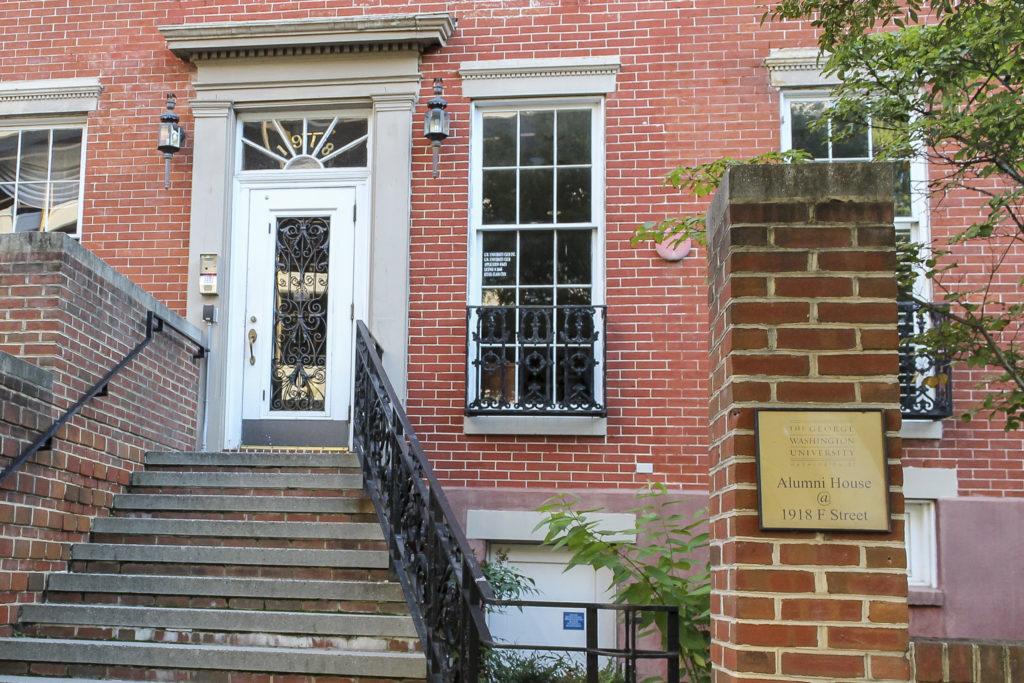The alumni relations office is trying to figure out how to best explain the impact of alumni and fundraising to current students.
The office began holding focus groups with student workers in the Colonial Connections call center last month to learn, from a student perspective, how alumni and their donations impact the student experience at the University. Students said they told supervisors that students don’t realize the full impact of alumni donations.
The Colonial Connection call center employs 54 students to contact alumni, parents and other University donors, according to its website. Callers gather information to update alumni records, share information on current events at the University and solicit gifts for GW’s academic scholarships and programs.
University spokeswoman Maralee Csellar said the office asked a “handful” of student workers in the office last month “for their perspective on the impact that alumni and philanthropy have on the GW student experience.”
“This fiscal year the division is seeking to gain a better understanding of the key programs supported by philanthropy that help improve student experiences and outcomes, and consider what new student-focused philanthropic opportunities or ideas may exist,” Csellar said in an email.
She declined to say if there were specific concerns the office was trying to address with the focus groups.
As the $1 billon fundraising campaign reached its goal earlier this year, the University ramped up efforts to reach alumni. GW has historically lagged behind peers in alumni donations with an alumni giving rate of roughly 9 percent in fall 2016.
By the end of the $1 billion campaign in June, 41,000 out of the total 65,000 donors were alumni.
The focus groups come amid a broader effort to evaluate the University’s fundraising operation in the wake of the campaign. University President Thomas LeBlanc said he would evaluate the performance of different schools in the campaign this academic year and over the summer, the Board of Trustees convened a task force centered on alumni engagement.
Officials have also sought to increase interaction between alumni and students by combining alumni and parents weekends into one event last month and by helping connect student groups with relevant alumni to appear at their events.
For the last three years, the University has used the annual Flag Day event to attract student donations.
Julia Febos, a student employee in the Colonial Connection call center who participated in the focus group, said officials are trying to improve alumni relations and engagement through these groups. In the sessions, groups of three students answered questions about what communication works best to lock in donations and which areas of the University are attracting the largest gifts.
“It was just a format of asking questions, going around, all three of us answering them. The questions were kind of like, ‘what works best for getting alumni to give, what do you think you think needs improvement,’ stuff like that,” Febos said.
Noor Dabbas, a Colonial Connection student employee, said the office asked the students about their experiences as a caller and what they discuss with the alumni in phone conversations.
Employees in the office volunteered to participate in the focus groups with three student employees participating in each session, Dabbas said. She said she often asks alumni donors to give back to the department they studied in to personalize their donation to the University.
“One thing that was brought up during the focus groups is that students don’t know what alumni are giving back. How are we going to be appreciative if we don’t know what’s coming from alumni gifts and what isn’t?” Dabbas said.
Natalee Ellars, the executive director of the Alumni Association at the University of California, Los Angeles, said looking for new ways to measure feedback on alumni outreach is always helpful, but there are limits to the usefulness of information the students provide.
Universities might not get the most accurate information about what alumni are interested in because students are biased toward the activities and groups that are a part of their student experience, she said. She said gathering this sort of information is not a common practice, but can help a university hone its outreach.
“I’m actually surprised because I think that it’s atypical, but could yield some interesting information,” she said.





